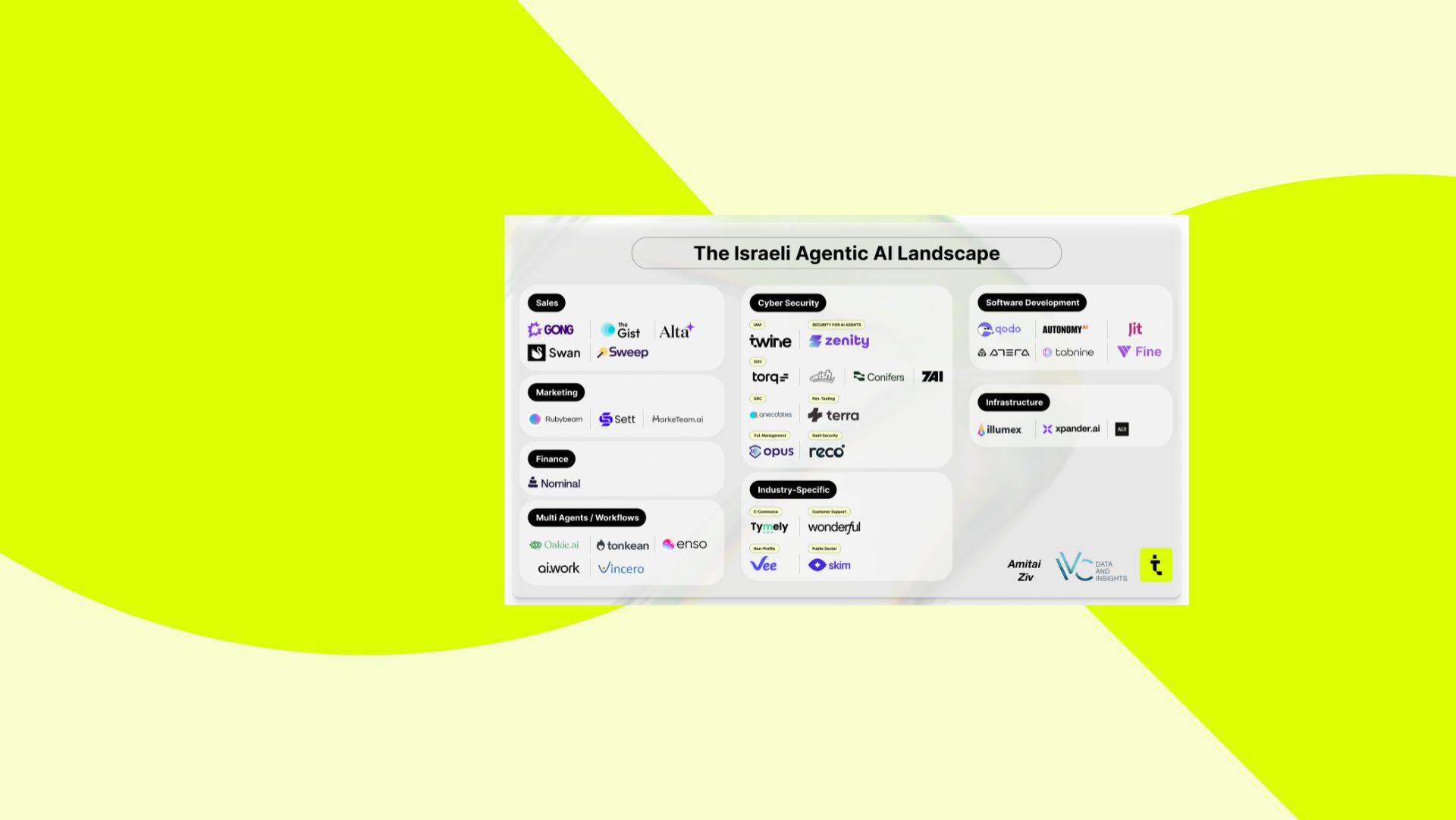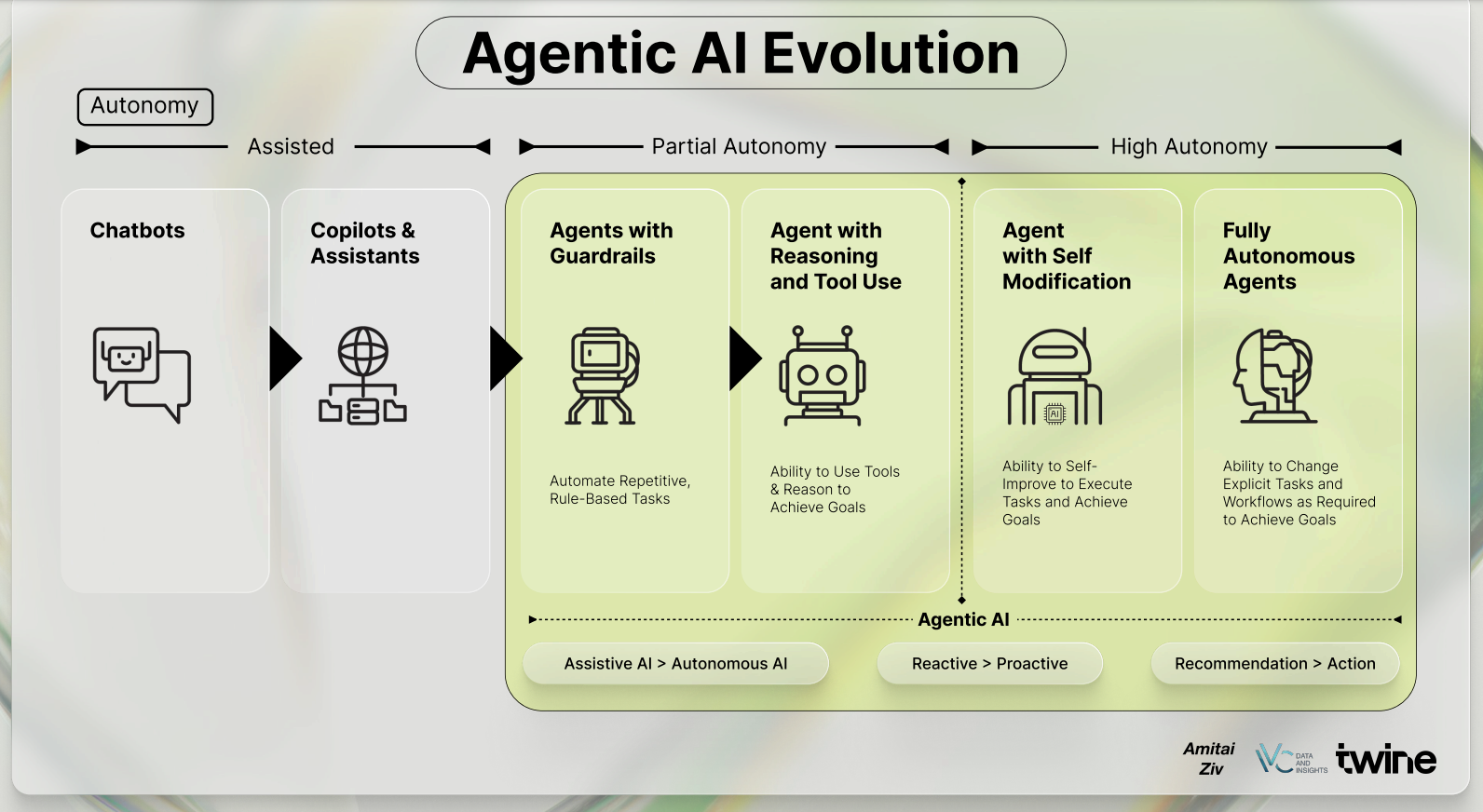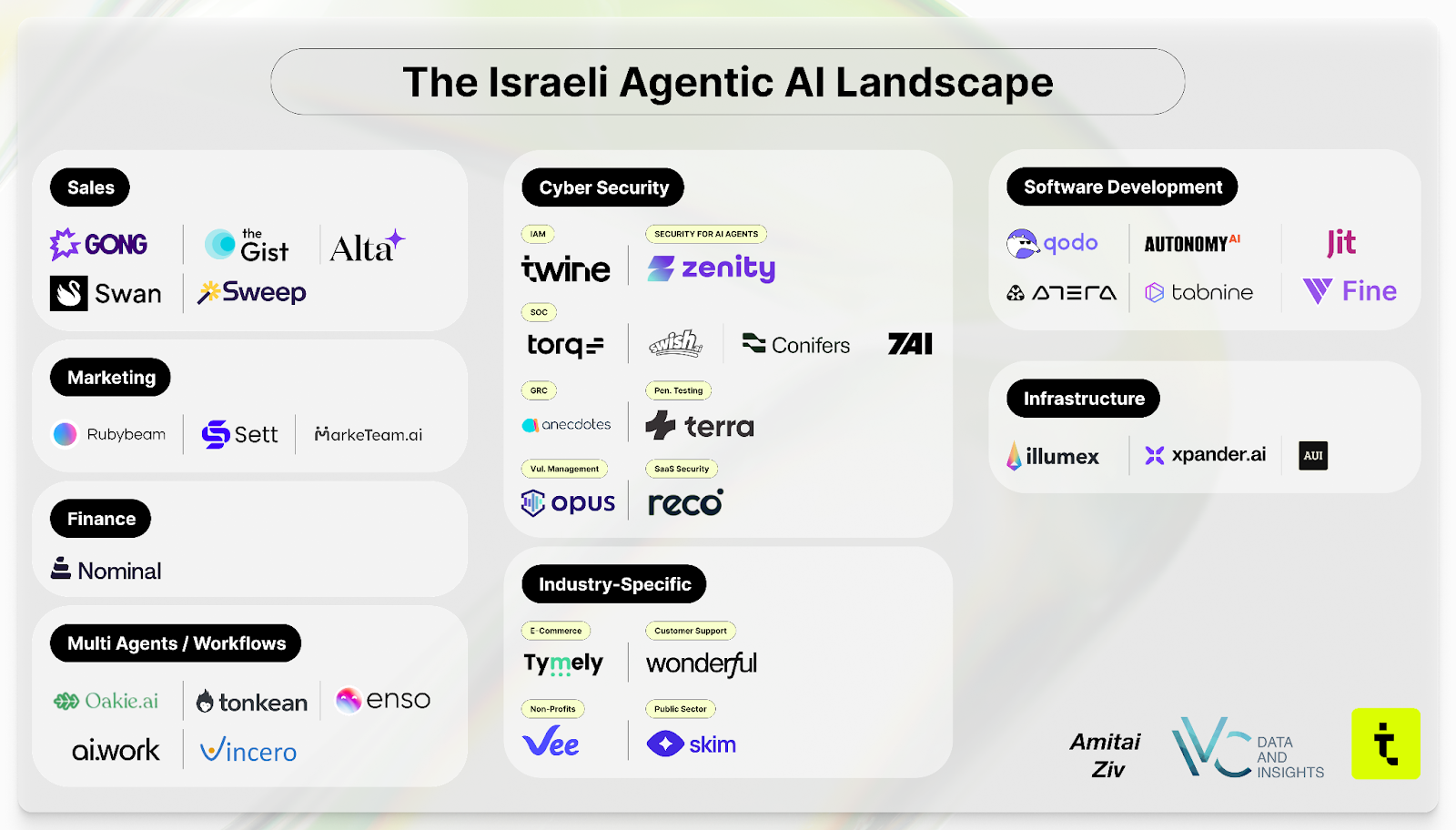The Israeli Agentic AI Landscape
The second wave of AI innovation is evolving from simple chatbots to Agentic AI - intelligent digital employees capable of collaboration, decision-making, and task execution. Israel’s startups are leading this transition, focusing on cybersecurity, software development, industry-specific solutions, multi-agent orchestration, sales and marketing, and infrastructure.

The first major wave of AI innovation took off when people grasped its creative power. The ability to generate text, images, music, and videos became known as generative AI. In 2023, more than half a million people downloaded OpenAI’s app in less than a week. Today, the company is fast approaching half a billion weekly active users.
And that’s only the beginning. A second incredible wave is emerging with agentic AI, where professionals are realizing they can harness AI as intelligent digital employees capable of both collaboration, decision-making, and independent execution of sophisticated tasks. In multiple aspects of our lives, AI agents will be there as our colleagues, assistants, consultants, and mentors.
This transformation is happening fast (and we’ve witnessed how quickly the world has moved from simple chatbots to co-pilots and now towards fully autonomous agents), and includes several stages until we reach a state where AI agents will become almost fully autonomous.
First, infrastructure and trust will be built, and later, capabilities to run on complex projects, edge cases, and intricate decisions will be made possible. At a more advanced stage, complex systems will incorporate a multi-agent system model, in which a collection of different AI agents will interact with each other and their environment to achieve a common goal. One artificial intelligence-based agent will perform actions in a specific area, and another agent will work alongside it, for example, to ensure that it does so in a sufficiently secure manner.

The enterprise implications will be profound, fundamentally reshaping workforce structures through new human-AI hybrid teams and driving operational efficiency by fully automating routine processes.
New companies in the field are already growing in Israel seeking to close critical talent gaps. We at IVC, in collaboration with Twine Security and with the help of journalist and tech blogger Amitai Ziv, decided to map it.
The Israeli Agentic AI Landscape
The map reflects a clear market signal: Agentic AI is moving from experimentation to execution, and Israel's startups are leading that transition through focused, security-conscious, and vertically-attuned solutions that prioritize both capability and trust:

- Cybersecurity leads decisively, with seven focus areas spanning Identity and Access Management (IAM), SOC automation, GRC, penetration testing, vulnerability management, SaaS security, and agent-specific risk management. This dominance reflects organizations' willingness to adopt Agentic solutions, together with the need to establish trust and data governance.
- The Software development category is the second biggest. In recent years Israel has become a global software development leader, mainly due to a strong innovation culture together with excellent universities and technology units like Unit 8200 and Talpiot, which provide young people with advanced technical training and exposure to cutting-edge systems. Now, these same people are building Agentic AI solutions for software developers with a similar problem-solving mindset that focuses on practical applications.
- Industry-specific solutions are also an active segment, including eCommerce, public sector, customer support, and non-profits. These startups are tailoring agentic workflows to specific sector constraints by automating reconciliation, fulfillment, policy processing, and support operations.
- Multi-agent orchestration is another notable trend, with platforms emerging to coordinate fleets of specialized agents across complex processes. As workflows grow in scope, demand rises for tools that manage planning, execution, validation, and handoffs between agents, mirroring how high-performing human teams collaborate and specialize.
- Sales and marketing startups are demonstrating early commercial traction, showing how autonomous agents can directly impact growth functions by generating qualified leads, personalizing outreach, and scaling content production.
- Finally, infrastructure startups are quietly enabling the ecosystem with vector databases, execution sandboxes, and observability tools. These utilities form the unseen backbone of scalable, safe deployments.
The Agentic Future
Building AI agents is not an easy task. To create their cognitive foundation and help agents make the right decisions, teams are working to build planning capabilities, proper memory allocation, tool integrations, reasoning abilities (foundation models that power complex analysis, comprehension, and decision-making), and structured guardrails. Therefore, globally, it’s anticipated that the landscape will be split between big tech companies dominating general-purpose agents and specialized players capturing niche vertical applications.
The Israeli agentic AI market is poised to deliver on the promise of agents that think, plan, and execute, earning our confidence through transparent, auditable, and controllable operations. With cybersecurity leading the charge and vertical‑specialized workflows fast on its heels, this ecosystem is uniquely positioned to deliver and perhaps define one of the most sophisticated technologies of our time.
By: Ben Ofer, Batya Feldman, Oliver Perel-Winkler
.jpg)


